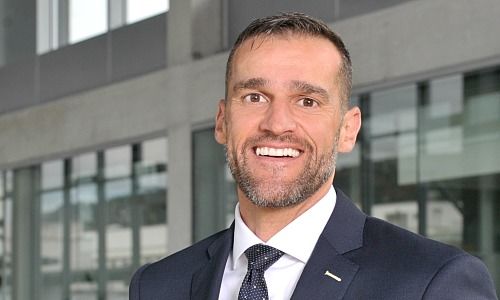Iwan Deplazes, head of asset management at Zuercher Kantonalbank, has identified a number of employees at Swisscanto who will be released early next year. The bank at the same time will invest in new jobs and passive funds, he told finews.ch in an interview.
Mister Deplazes, you have a Bloomberg terminal on your desk – that's a rare sight in the office of a boss. Don't you trust your employees' judgement in scanning the markets?
Monitoring markets is a core business of ours. Everybody has to contribute, including myself.
The mood on the markets has been sluggish recently. What about the performance of Zuercher Kantonalbank's asset management?
We didn't only have to deal with volatility in the markets, but also the merger with Swisscanto. It demanded a lot of attention in the first half. Since September, we've devoted out attention to the markets. The performance is satisfactory.
But...?
There's more work waiting for us in the harmonization of asset management procedures and the merging of portfolio systems.
«The factor size is now working in our favor»
What have the effects been on assets?
We suffered a decline through the end of September because of the markets. At the same time we gained a billion francs in net new money and currently manage almost 104 billion.
When you started the merger process with Swisscanto last December, you had 105 billion francs under management. The drop must be hurting you, because you said size was a main argument to merge?
Quite to the contrary: The factor size is now working in our favor, after the merger with Swisscanto. We are attracting new money which proves the point. A universal provider in asset management has to have a certain size, because markets become increasingly complex and because of the pressure on margins.
McKinsey scanned Swisscanto and concluded that volumes, earnings and profit pointed downwards. Have you been able to change the trend?
With the merger we've been able to get rid of duplications. Customers however also tend to buy more passive products with smaller margins. We are thus moving along our expectations, which I think is positive.
Swisscanto completely missed the train in relation to passive products, which mainly follow the market. What have you undertaken in that respect?
Zuercher Kantonalbank luckily has had a very well established line-up of index products for institutional clients for some five years already. We, as biggest Swiss-only fund manager, have to have both active and passive products.
Thanks to our knowledge in indexes we were able to acquire a great many abilities in the construction of portfolios and execution of transactions. We need both to score in the active fund management segment. That's why we are continuing to push our passive business, today also in retail banking, where ZKB used to focus on precious metals products.
«The Swisscanto branch at the Europa-Allee in Zurich will be closed»
ZKB doesn't just expand in asset management though: When the integration of Swisscanto was accomplished in June, Martin Scholl, the head of ZKB, said the bank hadn't released any bankers so far. How many of the 400 Swisscanto employees have been retained?
We said at the beginning that there was overlap at the level of employees. We promised to look for solutions with affected personnel. With a dozen people we currently have a situation, where no solution could be found despite intensive coaching measures. Their contracts will run out in April 2016. The Swisscanto branch at the Europa-Allee in Zurich will also be closed.
Insiders expected a cut of about 100 Swisscanto bankers. Are the 20 only the beginning?
No, we don't think so.
Are you hiring in some areas?
Yes, we have invested in new personnel in many ways since the merger. For instance, we hired Maurizio Pedrini as head of credit investments from Credit Suisse. We are looking for further personnel in this unit, which goes to show that asset management is a growth case at ZKB.
You are member of the steering committee of the asset management initiative. The initiative is going nowhere.
Switzerland has the best conditions for a successful global asset management. The difference in opinions about what exactly successful asset management means are making the promotion of asset management difficult.
The banking industry doesn't know what it wants?
We have providers with entirely different profiles. We first have to find common ground in this fundamental question before we are able to breath life into the initiative, which is important. Without a discussion there will be no branding. I'm very confident though that we will succeed.
Iwan Deplazes in 1998 as a student joined the fixed-income unit of Zuercher Kantonalbank. From 2003 to 2005 he was a team leader. He returned to ZKB in 2007 as head of institutional asset management, having worked in fixed income at Credit Suisse. In July 2007 he took over as head of asset management. Iwan Deplazes was a student at the University of Zurich and holds a diploma for European Financial Analysts and Asset Managers CEFA. He's a member of the Commission for Institutional Wealth Management of the Swiss Bankers Association and of the Steering Committee of the Asset Management Initiative Switzerland.






























